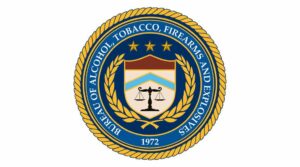Understanding FFLs: A Guide for High-Risk Payment Processing in the Firearms Industry
Summary
- Understanding FFLs: Explore the essential role of Federal Firearms Licenses (FFLs) in the firearms industry, including their types, purposes, and legal significance.
- High-Risk Payment Processing: Delve into why the firearms industry is considered high-risk for payment processing and the challenges businesses face in securing compliant payment solutions.
- FFLs and Payment Compliance: Learn about the intersection of FFLs with high-risk payment processing, focusing on the importance of compliance and best practices for firearm businesses in managing financial transactions.
FFL Introduction
The Federal Firearms License (FFL) is a cornerstone in the United States firearms industry, playing a crucial role in both the legal sale of firearms and the associated payment processing. For businesses involved in the high-risk sector of firearm sales, understanding the intricacies of FFLs is not just a legal necessity but a strategic advantage. This article explores the depths of FFLs and their significant impact on high-risk payment processing.
What are Federal Firearms Licenses (FFLs)?
A Federal Firearms License is a legal certification provided by the Bureau of Alcohol, Tobacco, Firearms and Explosives (ATF) allowing individuals or companies to engage in the manufacture, importation, and distribution of firearms and ammunition. There are several types of FFLs, each catering to specific activities within the firearms industry, ranging from basic gun dealing to manufacturing and importing.
The Role of FFLs in the Firearms Industry
FFLs serve as a regulatory framework, ensuring that firearm transactions comply with federal laws. They are essential for dealers, manufacturers, and even collectors. Compliance with FFL regulations is critical, as it ensures the legal operation of firearms-related businesses and aids in the prevention of illegal firearm trafficking. Understanding these regulations is key for anyone involved in the firearms industry.
High-Risk Payment Processing in the Firearms Industry
The firearms industry is categorized as high-risk in the world of payment processing due to various factors, including regulatory compliance and repetitional concerns. High-risk payment processors specialize in servicing industries like firearms, where traditional banking relationships can be challenging to maintain. These processors are adept at managing the increased risks and regulatory scrutiny associated with firearm transactions.
The Intersection of FFLs and High-Risk Payment Processing
FFL holders must navigate the complexities of high-risk payment processing, ensuring they partner with processors that understand the legalities and nuances of the firearms industry. This includes finding processors that are compliant with federal regulations and capable of handling the unique challenges posed by firearm sales. Transparency and strict adherence to FFL guidelines are paramount in choosing the right payment processing partner.
Navigating Legal Requirements and Payment Solutions
For FFL holders, it’s crucial to stay abreast of legal requirements, which can affect payment processing options. Selecting a payment processor experienced in the firearms industry, like Firearms Payment Gateway, can ensure compliance and smooth financial transactions. Due diligence in this selection process cannot be overstated.
Conclusion
Understanding Federal Firearms Licenses is essential for anyone involved in the high-risk payment processing of firearm sales. This knowledge ensures compliance with legal standards and aids in the selection of suitable payment processing solutions, crucial for the smooth operation of firearms businesses.
Call to Action
For specialized high-risk payment processing solutions tailored to the firearms industry, contact us. Our expertise ensures your business stays compliant and efficient. Get in touch today!


